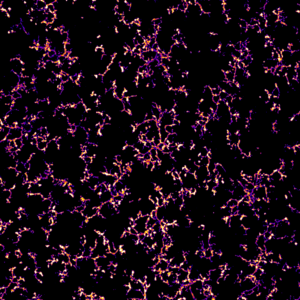The Brain Conference: Understanding and targeting Alzheimer’s disease
Rungstedgaard, Denmark
Event Dates: 05—8 May 2019
- 05/05/2019
- 06/05/2019
- 07/05/2019
- 08/05/2019

Dementia poses one of the largest health and economic problems in the world with over 50 million people worldwide living with dementia, no disease modifying treatments available, and numbers set to dramatically increase as our population ages. Neuroscience research has the real potential to change this bleak future and develop effective ways to prevent or treat the diseases that cause dementia.
Three of our current grand challenges towards this goal are to understand why certain brain regions are susceptible to the accumulation of pathology and neurodegeneration early in Alzheimer’s disease and related dementias, how pathologies then spread from these vulnerable regions to damage the rest of the brain, and finally how risk factors like ApoE modulate disease progression.
In this meeting, we will address the best way to move forward as a field in addressing these knowledge gaps with an emphasis on the emerging data in the field implicating non-neuronal contributors to disease risk and regional vulnerability. The latest clinical trials and the requirement of biomarkers for early risk assessment will be discussed on the background of our understanding of disease mechanisms. The meeting will end with a podiums discussion on the pros and cons of the amyloid cascade hypothesis.
Co-Chairs

Christian Haass
LMU Munich & German Center for Neurodegenerative Diseases, Germany

Beth Stevens
Harvard Medical School, USA
For enquiries and press registration, please contact the Brain Conference coordinator: brain@fens.org